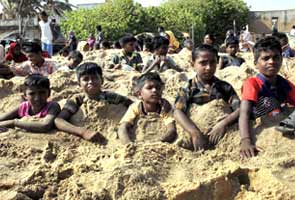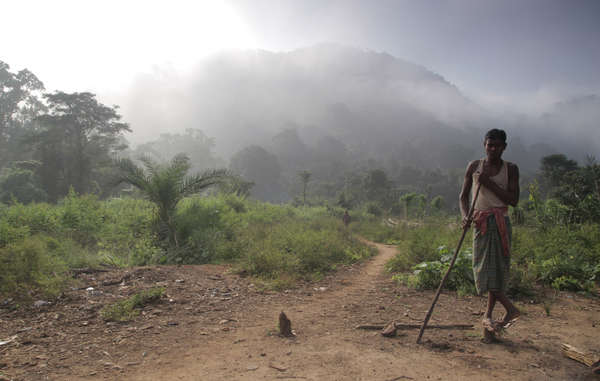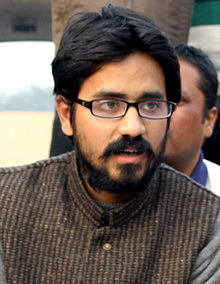“They had not sought any comments from the Maldives government. I’m
extremely disappointed that a group advocating for fairness and equal
treatment had released a report based on just one side of the story,”
Jameel told
Haveeru.
“An international group of the caliber of Amnesty should have heard
the other side as well. But they had failed to obtain our comments,”
Jameel is quoted as saying.
Minivan News was awaiting a response from Amnesty at the time of press.
When talking with Haveeru, Jameel did not appear to dispute the content of the statements that were included in the report.
Jameel was also not responding to calls from Minivan News at time of press.
The Amnesty report recounts sustained and pre-meditated beatings of protesters with a variety of weapons.
Some of those interviewed reported people being attacked in their
hospital beds, whilst others recalled torture and further degradation
whilst in detention.
Amnesty also detailed a number of incidents of police brutality on
February 8, including attacks on Maldivian Democratic Party (MDP) MPs
Eva Abdulla and Mariya Didi.
“The overall objective of these violent attacks has been to silence
peaceful government critics and stifle public debate about the current
political situation,” said the report, compiled by Amnesty researcher
Abbas Faiz.
“Based on Amnesty International’s interviews with survivors of these
violent attacks, it appears that many were targeted by security forces
because they were MDP ministers, parliamentarians or supporters,” it
read.
Whilst Amnesty stated that several of its human rights
recommendations were reflected in the Commission of National Inquiry’s
(CNI)
report,
which was released on August 30, Jameel argued that the CNI had
highlighted misdemeanors of protesters which did not make it into the
Amnesty report.
“CNI (Commission of National Inquiry) report had clearly highlighted
the actions of demonstrators during protests in the Maldives. The
foreign observers had labelled the actions of demonstrators as cowboy
tactics,” Jameel told Haveeru.
In their closing observations, Professor John Packer and Sir Bruce
Robertson had appeared critical of the anti-government protesters.
“Some would want to call an example of the rights of freedom of
expression and assembly. In reality it is rather more bully boy tactics
involving actual and threatened intimidation by a violent mob,” reported
Packer and Robertson.
Jameel continued: “The demonstrators undermine the peace and
stability, carry out attacks while being inebriated, carry out attacks
with sharp objects and damage private property. Even internationally
such actions are regarded as violence. However, the Amnesty report has
ignored all such things. It is extremely one sided and unjust,” said
Jameel.
The CNI report’s major findings were that February’s transfer of
power was constitutional and that, rather than amounting to a coup, the
events preceding former President Mohamed Nasheed’s resignation were of
his own making.
The report did conclude that acts of police brutality had been
committed in February and urged further investigation by relevant
authorities.
Following the release of the report, Jameel explained that the
government would leave these investigations to the Police Integrity
Commission (PIC).
Widespread doubts persist, however, as to the strength of independent
institutions in the country with the Chair of the PIC publicly
expressing her doubts over the ability of the PIC to handle the pressure of these investigations.
This issue was reflected in Amnesty’s findings: “Government officials
have frequently shrugged off their own responsibility to address human
rights violations, saying it is the purview of the Human Rights
Commission (HRCM) and the PIC.”
“However, both bodies have yet to conclude their investigations into
all of the most serious human rights violations does not absolve the
government of its responsibility to exercise due diligence in
guaranteeing the rule of law and protecting human rights,” it continued.
Amnesty’s recommendations also included de-politicisation of the
police, reform of the judiciary and enhanced training of security forces
to meet with international standards of conduct.
Nasheed’s MDP have been fiercely critical of the CNI’s methods following the resignation of their commission member,
Ahmed ‘Gahaa’ Saeed, on the eve of the report’s publication.
Jameel’s comments echo those of Police Commissioner Abdulla Riyaz who, in April,
told Minivan News of his own scepticism of Amnesty’s methods
“I don’t see that there has been any investigations done, none of our
officers was questioned, interviewed – neither by them nor by the
Police Integrity Commission (PIC), nor by the Human Rights Commission
(HRCM). I don’t think that’s fair,” said Riyaz.










